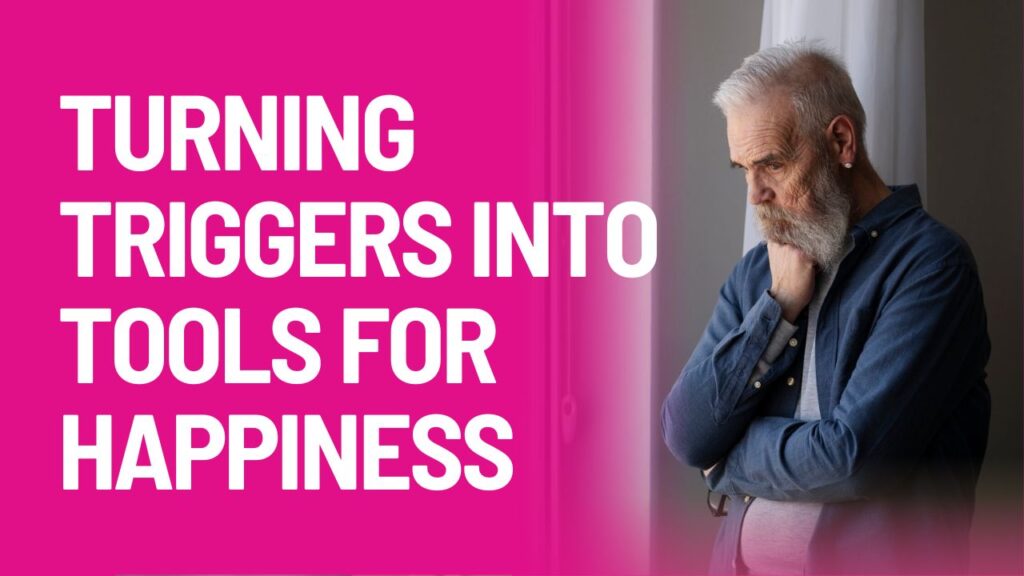As we journey through life, particularly as we step into our elderly age, we often find ourselves navigating new challenges and emotions that we might not fully understand. You might feel anger bubbling up when a simple request is ignored or a pang of jealousy when a friend accomplishes something you’ve always wanted. These feelings are more than just passing moments—they’re messengers trying to tell us something important.
In this article, we’ll explore what these emotions mean, how they can serve as guides to a more peaceful and fulfilling life, and why it’s essential to acknowledge them rather than brush them aside. We’ll also share a light-hearted story to bring the message home, offering a practical example of how understanding your triggers can bring positive changes to your daily life.
The Emotional Guidebook: What Your Feelings Are Trying to Tell You
Emotions are like signposts on the road of life, especially as we navigate the complexities of growing older. Here’s a brief rundown of what some common emotions might be signaling:
- Anger: This often arises when a fundamental need is being ignored or dismissed. It’s your inner self waving a red flag, saying, “Hey, something important is being overlooked!”
- Shame: This can be an invitation to practice self-acceptance and love. It whispers, “Be kind to yourself. You’re only human.”
- Jealousy: This feeling reveals what you desire for yourself and where you might feel ‘less than’ others. It’s a nudge to recognize your own worth and aspirations.
- Judgment or Criticism: When you judge others, it often reflects where you’re harsh on yourself. It’s a mirror, showing you where you might need to soften your self-criticism.
- Depression: This can occur when your soul isn’t being nourished by the way you’re living. It’s a call to seek out what truly brings you joy and meaning.
- Overwhelm: Feeling overwhelmed invites you to pause and let go of things that aren’t essential. It’s your mind’s way of telling you to simplify and prioritize.
- Exhaustion: This is a sign that you need to set boundaries to stop over-functioning. It’s an invitation to rest and recharge.
- Dissociation: This feeling of being disconnected from reality indicates that you’re feeling unsafe. It’s your body’s way of telling you to return to the present moment and ground yourself.
Mrs. Thompson’s Epiphany
Let’s take a trip down memory lane to meet Mrs. Thompson, a sprightly woman in her early seventies who had always been the life of the party. But recently, she’d noticed a change. Little things started to irritate her—like when her neighbor’s dog barked incessantly or when her son didn’t call as often as she’d like. She also found herself feeling exhausted after just a few hours of gardening, an activity she used to love.
One sunny afternoon, while sipping her tea, Mrs. Thompson had a light-bulb moment. “Why am I so angry all the time?” she pondered. “And why do I feel so worn out?”
Determined to get to the bottom of it, she decided to seek help. She reached out to a therapist who specialized in working with older adults. During their sessions, Mrs. Thompson learned that her anger wasn’t just about her neighbor’s dog—it was about feeling unheard and unimportant. Her exhaustion wasn’t simply physical; it was emotional, stemming from years of putting everyone else’s needs before her own.
With this new understanding, Mrs. Thompson made some changes. She started by setting boundaries with her family, making it clear that she needed time for herself. She also found ways to reconnect with her passions, like joining a local gardening club where she met new friends who shared her love for plants. Slowly but surely, Mrs. Thompson’s anger faded, and her energy returned.
Applying the Lesson: How You Can Turn Triggers into Tools for Growth
Like Mrs. Thompson, many older adults find that their emotions become more pronounced as they age. But rather than ignoring these feelings, it’s important to acknowledge them and explore what they might be trying to tell you. Here’s how you can apply the lesson from Mrs. Thompson’s story to your own life:
- Pay Attention to Your Triggers: Notice when certain emotions, like anger or jealousy, arise. Instead of brushing them off, take a moment to ask yourself, “What is this feeling trying to tell me?”
- Seek Help if Needed: If you’re struggling to understand your emotions or if they’re affecting your well-being, don’t hesitate to seek help. A therapist or counselor can provide valuable insights and tools to help you navigate your feelings.
- Set Boundaries: Just like Mrs. Thompson, it’s important to set boundaries that protect your well-being. Whether it’s saying no to unnecessary obligations or carving out time for yourself, boundaries are essential for maintaining emotional health.
- Reconnect with What Brings You Joy: If you’re feeling down or disconnected, it might be a sign that your soul needs nourishment. Engage in activities that bring you joy and fulfillment, whether it’s a hobby, socializing with friends, or volunteering.
- Practice Self-Compassion: Remember that it’s okay to feel what you’re feeling. Practice being kind to yourself, especially during moments of shame or self-judgment.
Embrace Your Emotions, Embrace Your Life
As we grow older, it’s easy to fall into the trap of thinking that certain emotions are just part of the aging process. But in reality, these feelings are clues that can help us live more fulfilling lives. By acknowledging your triggers and understanding what they mean, you can take steps to address the underlying issues, leading to a happier, more peaceful life.
So the next time you feel anger, jealousy, or exhaustion creeping in, take a moment to pause and listen. What is this emotion trying to tell you? How can you use this knowledge to improve your life?
Remember, every age is a CanDoAge and it’s never too late to make positive changes. Whether you’re in your sixties, seventies, or beyond, every day is an opportunity to learn, grow, and thrive. Embrace your emotions—they’re not just challenges; they’re also guides on your journey to a happier, healthier you.
By understanding and working on your emotional triggers, you can find peace and happiness, not just in your elderly age but at any stage of life. Embrace active aging, cherish your journey, and let every emotion lead you to a more fulfilled and joyful life.

